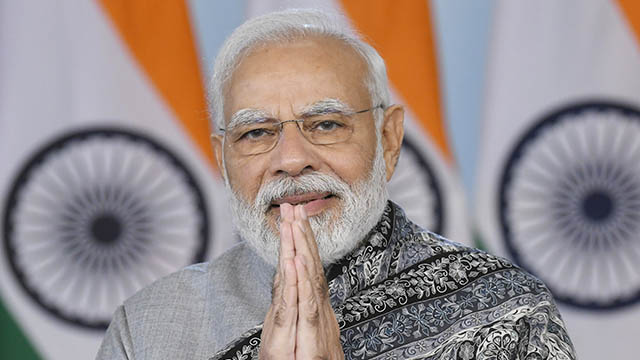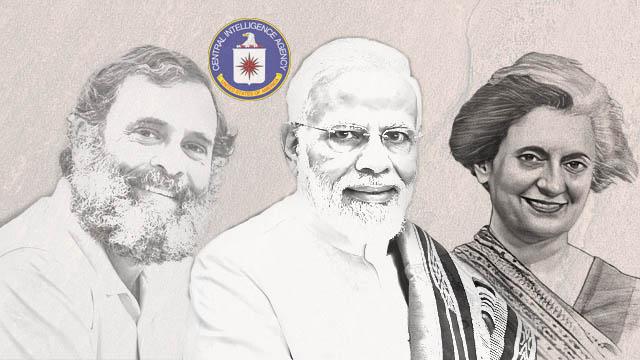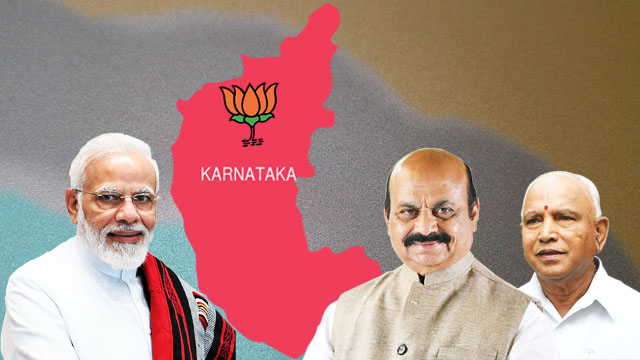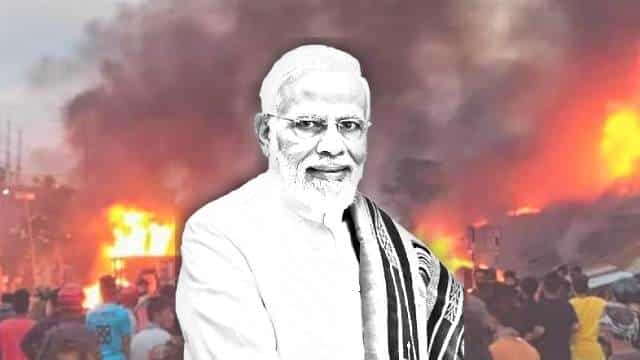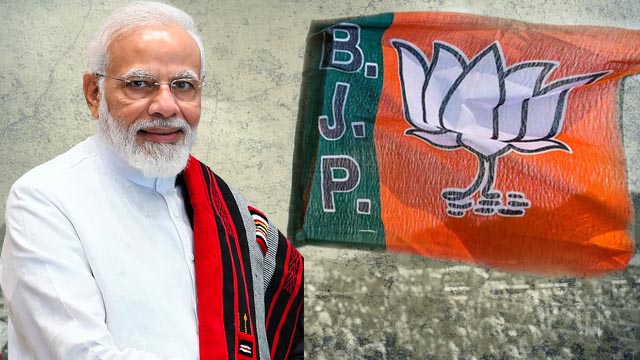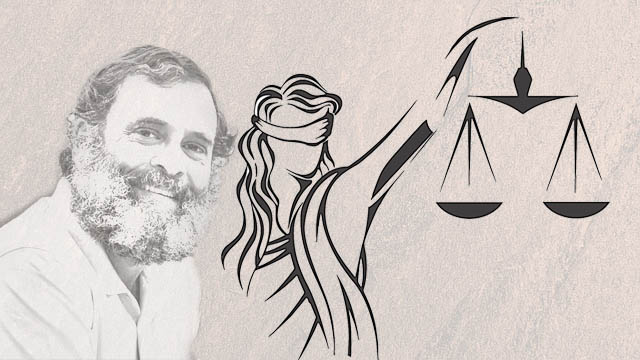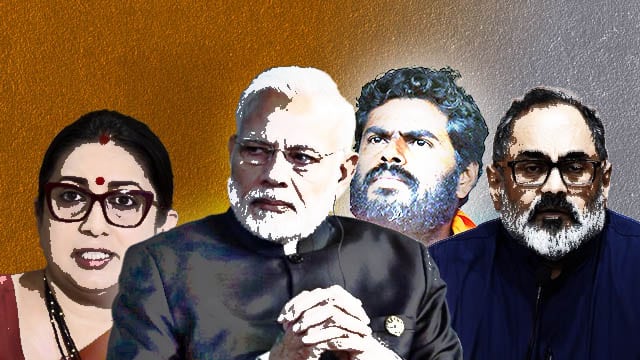A political controversy has erupted in India over a two-part BBC documentary on Prime Minister Narendra Modi. The BBC documentary on Modi blamed him for the 2002 Gujarat Muslim genocide as the then chief minister. It indirectly blamed him for the growing Islamophobia and persecution of Muslims in India after he became the prime minister.
After the documentary’s first part was released, the Modi-led Union government quickly banned its broadcast in India using emergency powers under India’s controversial IT rules. The Union government ensured that the documentary was unavailable to Indian viewers on social media. The Opposition has strongly condemned this act as an authoritarian move.
The Congress party, the Trinamool Congress, and the left-wing parties have defied the ban by sharing download links and organising public screenings of the documentary.
Content of the BBC documentary on Modi
The BBC documentary on Modi has been released in two parts.
The first episode shows Modi’s journey from a cadre of the Rashtriya Swayamsevak Sangh (RSS), the fountainhead of ultra-right Brahminical nationalism, to the leadership of the organisation’s parliamentary wing, Bharatiya Janata Party (BJP), and then to the Gujarat chief minister’s post in late 2001.
The first episode also shows how the RSS-affiliated Vishwa Hindu Parishad (VHP) and the Bajrang Dal, identified as militant religious outfits by the CIA, carried out massacres of Muslims across Gujarat from February 28th, 2002, onwards, during Modi’s tenure as the chief minister.
It has been alleged in the BBC documentary on Modi that his government refrained from taking any decisive action to quell the violence. Part of Modi’s past interview with the BBC about the massacre was also shown in the episode, in which he denied all allegations and said he did not want lessons on human rights from the British.
Officially 1,040 people were killed in the 2002 Gujarat pogrom, including 790 Muslims. Modi and the RSS-affiliated organisations blamed the “Godhra carnage” for this pogrom. A sleeper coach—number S9—of the Sabarmati Express was set ablaze at Godhra station on February 27th 2002, which resulted in the death of 59 VHP activists.
The Muslims were accused of the carnage by the Gujarat government. The VHP-Bajrang Dal seized the opportunity to massacre Muslims all over Gujarat following the Godhra incident. Modi called the pogrom a tit-for-tat reaction by referring to Newton’s Third Law of Gravity.
Later, a commission of inquiry headed by Justice UC Banerjee on behalf of Indian Railways stated that the S9 coach was not set ablaze from the outside but burned due to an accidental fire from the inside. This report was disputed, and a court convicted 31 for the “Godhra carnage”.
Surprisingly, overlooking other facts, the BBC documentary on Modi blames the Gujarat Muslim massacre on the Godhra incident, accepting the RSS’s narrative on the incident and thereby justifying the massacre implicitly.
The most surprising thing in this first episode is the interview with former British Foreign Secretary Jack Straw. Straw made an explosive comment to the BBC. He said that at that time (2002-03), the British ambassador to India and the British High Commission conducted an inquiry into the Gujarat pogrom and blamed the Modi government. However, Straw said the UK government had never released the ‘secret report’ and had taken no action.
Incidentally, The Caravan Magazine published a report on this report, alleging that it was indeed submitted to the UK government against Modi and the Gujarat government at that time, but no action was taken.
However, a big question is how the British government can take any ‘action’ against the government of a sovereign country’s politician.
It is worth noting that Modi was banned from entering the US, some European countries and the UK for almost a decade after the Gujarat pogrom.
In 2012, the Special Investigation Team (SIT) set up by the Supreme Court of India acquitted Modi in its report, leading to his acquittal by the apex court. After this, with the help of former British ambassador James Bevan and the support of the Hindu Swayamsevak Sangh (HSS), the foreign wing of the RSS, Modi got the right to enter the UK. After this, the United States and European countries also lifted the ban on his travel.
The second episode of the BBC documentary on Modi shows that organised violence against Muslims has increased under Modi’s reign, especially since his re-election in 2019. From the abrogation of Article 370 of the constitution and the removal of the special status of Jammu and Kashmir, the initiation of the process of building a Ram temple on the ruins of the demolished Babri Masjid in Ayodhya, etc, to the February 2020 anti-Muslim pogrom in Delhi and the subsequent rise in persecution of minorities across the country, there have been multiple incidents that exhibit the government’s complicity.
At the beginning of the second episode, the BBC informs that around 30 people did not want to participate in the documentary out of fear. But authors Arundhati Roy, Nilanjan Mukhopadhyay, Christophe Jaffrelot, the BBC’s Jill McGivering, The Caravan’s Hartosh Singh Bal, Lucknow-based journalist Alishan Jafri, Amnesty India chief Aakar Patel, BJP’s Swapan Dasgupta and Subramanian Swamy (now a right-wing Modi critic) participated in this episode. Their interviews and opinions are shown in this episode.
However, their views did not add any new perspective but simply reiterated what was commonly said against and for Modi. Overall, the communal character of Modi and his government has been discussed, and his economic program and the resulting overall economic crisis in India or the employment and livelihood issues of the common people have been largely left out of the discourse.
Most Modi critics have termed his government as ‘anti-Muslim’. Still, not enough attention has been paid to how his economic programmes have allegedly worsened the crisis in the daily lives of most working people. As a result, the BBC documentary on Modi may appear to imply that the Modi government’s actions have benefited the country’s majority Hindu community, which obscures India’s core problems.
Government of India’s statement on the BBC documentary on Modi
Modi government’s Foreign Ministry spokesperson Arindam Bagchi termed the BBC documentary on Modi as “propaganda” and alleged that it was made from a colonial mindset.
Kanchan Gupta, a journalist close to the BJP and a senior adviser to the Ministry of Information & Broadcasting, tweeted the decision to block the BBC documentary on Modi “under India’s sovereign laws and rules”.
Gupta alleged that the documentary is “hostile propaganda” and “anti-India garbage”. He accused the BBC documentary on Modi of “casting aspersions on the authority and credibility of Supreme Court of India, sowing divisions among various Indian communities, and making unsubstantiated allegations”.
In the thread to his tweets, Gupta alleged that the documentary was “found to be undermining the sovereignty and integrity of India, and having the potential to adversely impact India’s friendly relations with foreign countries as also public order within the country”.
It may be noted that the Modi government’s decision to ban a BBC documentary was imposed per the Information Technology (Guidelines in Media and Digital Media Ethics) Rules, 2021, which was prepared per a mid-2020 decision by a group of ministers (GoM) comprising five cabinet ministers and four ministers of state in the Union government.
This GoM aims to gag the Union government’s critics on social media and the internet, amplify the pro-government voices, and ensure only positive narratives regarding the government thrives in the digital space. BJP-affiliated former journalists like Dasgupta and Gupta, along with other pro-government influencers, were tasked with the public relations of the Modi government.
Opinions of the opposition
Many of the opposition parties used to blame Modi for the Gujarat pogrom earlier. However, since the allegation of being a ‘pro-Hindu’ politician helped Modi sweep elections, one after another, with ease by polarising the majority community, many opposition parties retreated gradually from accusing him and the BJP of communalism.
However, many opposition politicians jumped into the fray over the BBC documentary on Modi. They have criticised the ban on the documentary and accused the government of resorting to authoritarian measures, undermining India’s democratic values.
Trinamool Congress MPs Derek O’Brien and Mahua Maitra top the list of opposition politicians who vocally opposed the ban on the documentary.
O’Brien complained that his tweet sharing the documentary was taken down by the social media platform following the Modi government’s orders. Moitra also shared the download links of the BBC document on Modi, defying the ban order.
Several left-wing student organisations organised screenings of the BBC documentary on Modi at various universities across the country, including New Delhi’s Jawaharlal Nehru University (JNU), Jamia Millia Islamia (JMI), Delhi University and Ambedkar University.
The RSS’s student wing, Akhil Bharatiya Vidyarthi Parishad (ABVP), reportedly attacked students at JNU, Delhi University and Ambedkar University during the screening of the documentary.
It has been reported that university authorities disconnected the power supply to stop the screening at several places, including JNU, Presidency University in Kolkata, etc. At the same time, the ABVP carried out its violent rampage at different institutions.
Along with this, Delhi Police detained left-wing students who were present at JMI and released them a day later.
The opposition Congress organised public screenings of the documentary in various parts of Left-ruled Kerala. Apart from this, several opponents of the BJP have uploaded the BBC documentary on Modi on the internet and shared its link with the public.
The BJP has refuted the allegations. It continued calling the BBC documentary on Modi a piece of propaganda and termed it an “anti-national” conspiracy.
International repercussions
India has faced international criticism for banning the BBC documentary on Modi. While British Prime Minister Rishi Sunak disagreed with the BBC documentary’s findings and a large section of the ruling Conservative Party sided with Modi, the opposition Labour Party has criticised the Modi government’s ban on the BBC documentary.
Although Straw referred to a secret report submitted to the UK government on the Gujarat pogrom, and The Caravan magazine reported that such a report exists, Sunak’s government declined to comment on it. Sunak responded to criticism from the Labour Party, saying that he does not agree with the accusations made by the BBC.
It’s noteworthy that the UK is now looking to sign a major trade deal with India, so the Conservative government is apparently not in the mood to offend Modi. Conservative House of Lords MP Rami Ranger has written a letter to BBC director general Tim Davey criticising the BBC documentary on Modi.
Lord Rami questioned the timing of the documentary’s release, terming it “sinister”. Referring to the growing Hindu-Muslim conflicts in Britain and the appointment of an Indian-origin person like Sunak as the prime minister, he asked whether the BBC’s “Pakistani-origin staff were behind this nonsense”?
The US has also subtly criticised the banning of the BBC documentary on Modi in India. The US government spokesperson Ned Price said that Washington DC has always supported freedom of the press and asked all countries, including India, to uphold all democratic rights, including freedom of expression.
We continue to highlight the importance of democratic principles, such as freedom of expression, freedom of religion or belief, as human rights that contribute to the strengthening of our democracies. This is a point we make in our relationships around the world. It’s certainly a point we’ve made in India as well,” Price said.
A German foreign ministry spokesperson reportedly said, “The constitution (of India) enshrines fundamental rights and freedoms. Freedom of the press and speech are among those. Germany shares these values with our India partners. Germany stands up for these values all over the world and which we, of course, discuss with India on regular basis.”
Reporters Sans Frontières (RFP) publishes a global press freedom ranking annually, using Western yardsticks to gauge the performance of 180 countries. As per the RSF’s index, India’s press freedom has eroded over the past few years, and it now ranks 150th out of 180 countries, a fall from its 142nd position in 2021.
The International Press Institute (IPI) has also expressed its “alarm” regarding India’s banning of the BBC documentary on Modi. “The Modi government is clearly abusing emergency powers under the IT Rules to punish or restrict any and all criticism of its policies,” the IPI director Amy Brouillette said.
“We urge private platforms to continue to push back against the Modi government’s overly broad and unjustified censorship demands,” Brouillette added. She also said, “Online platforms must ensure that their compliance with such demands does not aid the government’s ongoing campaign to silence critics, journalists, and activists in India.”
It’s noteworthy that following the Ukraine war, most European Union member countries, the US and the UK, have banned Russian media houses from broadcasting or publishing their content in these countries. Moreover, US-based big-tech social media companies like Meta, Twitter and Google’s YouTube have been accused of censoring content with a Russian perspective regarding the Ukraine conflict.
Why is the BBC documentary on Modi published now?
Although the BBC documentary on Modi has stirred political controversy, its timing—20 years after the pogrom—raises a lot of doubts regarding its real intention.
Within days of the release of this documentary, US-based Hindenburg Research published a report accusing Adani Enterprises, owned by Gautam Adani, who is allegedly close to Modi, of increasing its wealth through stock market manipulation.
As a result, the share prices of the Adani group have seen a sharp fall in the Indian market in the last few days. Even the share prices of the state-owned insurance giant Life Insurance Corporation (LIC), which has exposure in the conglomerate, have suffered severely.
The BBC documentary on Modi has been released amid the UK’s trade deal discussions with India. The trade deal is in limbo as New Delhi has demanded more business, student and work visas for Indians. New Delhi has also asked for long-term visas for Indians.
Such demands are problematic for the Conservative government, which relies on anti-immigration rhetoric to consolidate its supporters amid severe economic crises and spiralling inflation.
Another major aspect in the UK’s politics is the rise of Indian-origin Sunak, the first man of colour to enter 10 Downing Street. Sunak reportedly represents the banking and financial lobby, which wants more business opportunities in India. But the Modi-led government remains non-committal regarding this lobby’s demand for more stake in India’s financial and legal advisory sectors.
As a man who has to balance the demands of the banking lobby, his far-right anti-immigration Tory vote bank and the HSS-led Hindutva camp in the UK, Sunak won’t risk upsetting Modi. However, the British policy hawks are quite annoyed with India’s foreign policies, like other Western forces led by the US.
Since Russian President Vladimir Putin launched his ‘special military operations’ in Ukraine last year, the US-led West has pressured India to join the anti-Russia coalition. However, the Modi government has managed to retain an independent foreign policy and has balanced its approach.
New Delhi didn’t use strong rhetoric against Moscow over Ukraine. Moreover, defying the West’s sanctions, the Modi government has increased bilateral trade with Russia, especially by importing energy commodities like oil. Circumventing the US-led economic system’s dollar payment mechanism, India and Russia are conducting their bilateral trade in a rupee-rouble arrangement, which has irked the US and the West.
Despite being a member of the Quad, a four-nation alliance led by the US against China, India has consistently refrained from using the platform for jingoistic rhetoric against its neighbour. After the 2020 border clash in Ladakh, India and China have taken steps to preserve bilateral relations and resolve the conflict peacefully. India has attended the Shanghai Cooperation Organization (SCO) meeting, and apart from its G20 presidency, India will also host the SCO foreign ministers’ meet in 2023.
Ignoring the US diktats, the Indian government has increased bilateral trade with China, despite no breakthrough in resolving the ongoing border dispute. Bilateral trade between India and China reached its peak in 2022. As a result, Western powers are not quite happy with India evading their bait, which could have led to a conflict with China.
In these circumstances, the BBC documentary on Modi, which has no new information or perspective other than the accusations levelled by someone like Straw, a man accused of using disinformation to invade Iraq and kill millions, raises questions regarding its ultimate purpose. Was it a journalistic pursuit of truth? Then why the BBC took 20 years to release it?
Or does it aim at blackmailing the Indian government’s foreign policy, which doesn’t conform to the hawkish imperialistic policies that the promoters of British and Western diplomacy follow ardently?
While many hope that this documentary will help reveal Modi’s so-called “true self”, in reality, an English documentary in a country where the overwhelming majority can’t understand the language won’t help in scoring political brownies.
Moreover, history has repeatedly proved that Modi and the BJP swept elections comfortably whenever they were accused of “communalism”. A Yale University study found that the BJP gains whenever there is an incidence of communal violence.
By polarising the Hindu vote bank, Modi managed to increase his total vote share by 12.20 percentage points from 18.80% in 2009 to 31% in 2014 and 37.36% in the 2019 general elections. Thus, blaming him for the 2002 Gujarat pogrom will not fetch the Opposition votes in 2023 or 2024 but will help Modi polarise and consolidate his Hindu vote bank.
What remains to be seen is whether the BJP can manage to sweep the controversy over the BBC documentary on Modi under the carpet or it will use the political upheaval in its favour and polarise more voters in the upcoming assembly elections in 2023 and general elections in 2024.
Tanmoy Ibrahim is a journalist who writes extensively on geopolitics and political economy. During his two-decade-long career, he has written extensively on the economic aspects behind the rise of the ultra-right forces and communalism in India. A life-long student of the dynamic praxis of geopolitics, he emphasises the need for a multipolar world with multilateral ties for a peaceful future for all.

